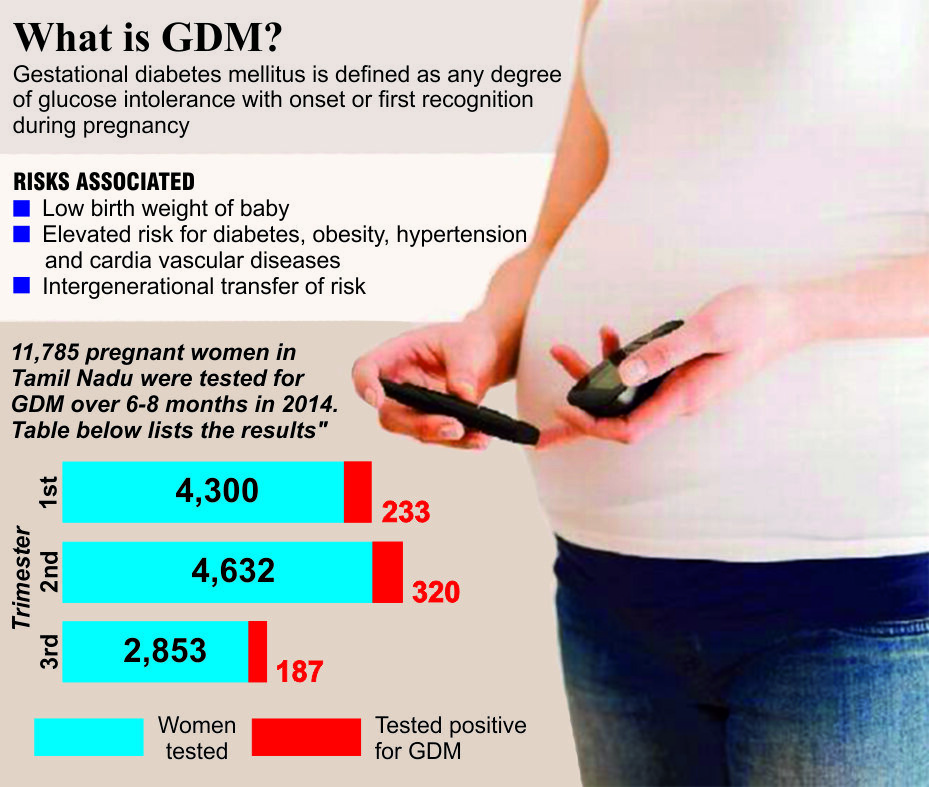Science & Technology
Gestational Diabetes Mellitus
- 06 Jun 2019
- 3 min read
A recent paper published in the Journal of the Association of Physicians of India has argued the importance of screening of every pregnant woman for high blood glucose even if no symptoms are exhibited.
- Gestational diabetes mellitus (GDM) is defined as any degree of glucose intolerance with onset or first recognition during pregnancy.
- GDM not only influences immediate maternal (preeclampsia, stillbirths, macrosomia, and need for cesarean section) and neonatal outcomes (hypoglycemia, respiratory distress), but also increases the risk of future Type 2 diabetes in mother as well as the baby.
- Prevention at the earliest stage of development of the foetus is essential to prevent children from becoming predisposed to diabetes or other non-communicable diseases (NCD) in future.
- Higher glucose transfer to the foetus, when the mother has high blood sugar, stimulates the foetal pancreatic cells to start secreting insulin earlier and in higher quantities. Once initiated, it becomes self perpetuating.
- In addition, when the maternal glucose reading is high (over 110 mg/dl), the amniotic fluid becomes glucose enriched, and after 20 weeks, when the foetus begins to swallow the amniotic fluid, which further stimulates production of insulin.
Gestational Diabetes in India
- India has an estimated 62 million people with Type 2 diabetes mellitus (DM); this number is expected to go up to 79.4 million by 2025.
- In parallel with the increase in diabetes prevalence, there seems to be an increasing prevalence of gestational DM (GDM), that is, diabetes diagnosed during pregnancy.
- India has a very high prevalence of GDM by global standards. Conversion rates to Type 2 diabetes are also very high.
- Healthcare resources are insufficient. There is inadequate awareness among public. This results in a large population being hesitant to access healthcare system for diseases with not so “obvious” implications like GDM.
- Interventions during and immediately after pregnancy provide important opportunities to improve the lives of mothers and children today and reducing diabetes in future generations.
- Screening and appropriate management of diabetes during pregnancy provides a unique opportunity to prevent Type 2 diabetes in two generations.
- Lack of awareness in society is one of the reasons that GDM is given low priority in public health delivery system in India.
- Therefore, the Ministry of Health has developed national guidelines for testing, diagnosis and management of hyperglycaemia in pregnancy, and they recommend early testing at the time of contact (during the first trimester) and if the test is negative, yet another test should be done between 24-28 weeks.





